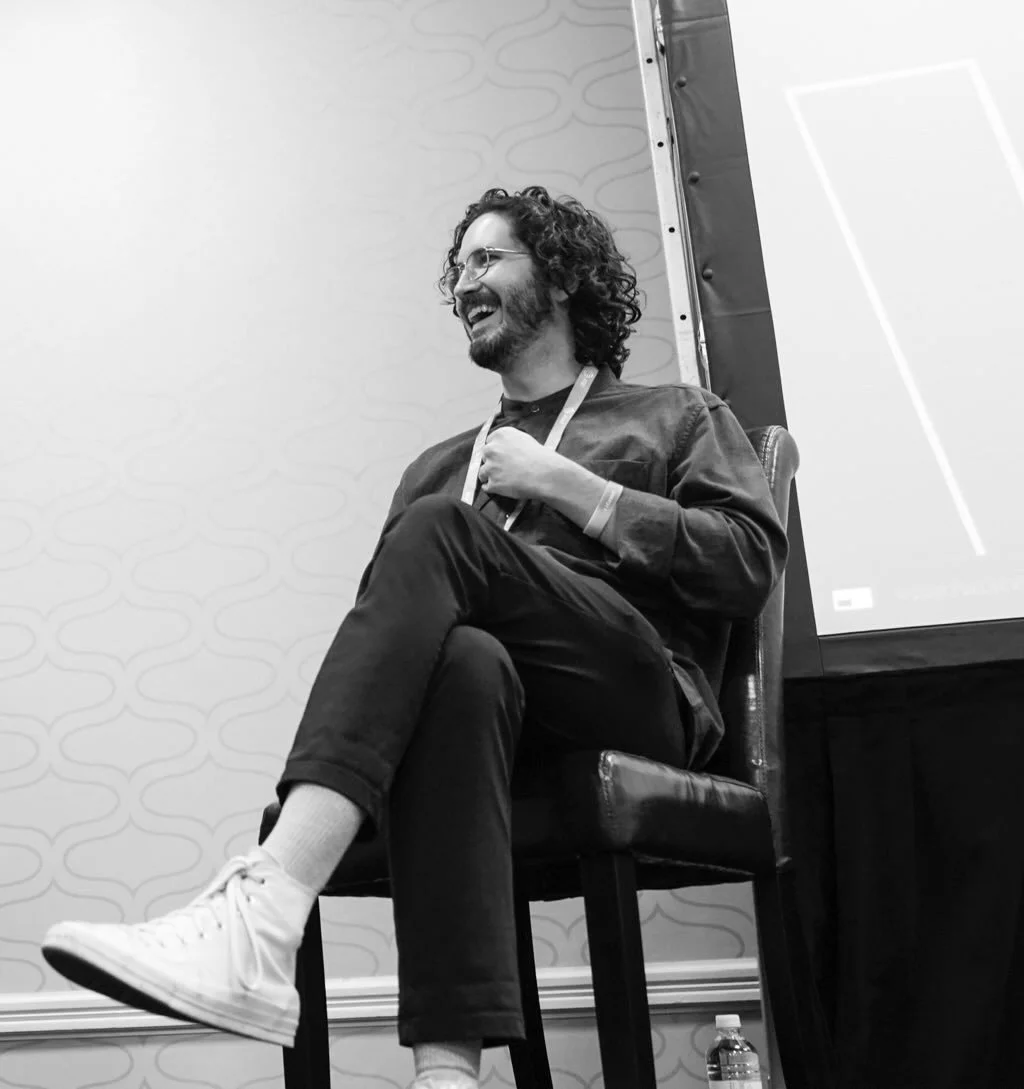
Sexual purity
Obsessed with sex
Many ex-Cru members and staff who were interviewed described the organization’s emphasis on “purity culture,” a hallmark of evangelicalism. Purity culture discourages any sexual activity outside of heterosexual marriage, including pornography use and masturbation. Multiple credible outlets have written about the lasting damage purity culture causes.
Purity culture is closely tied to complementarianism, a binary school of thought emphasizing traditional gender roles in the church. Complementarians believe men should be responsible for teaching and leadership, while women should focus on caretaking and providing emotional support.
Cru and its branches have long been vocal supporters of both purity culture and complementarianism. In 1993, an arm of Cru called FamilyLife published “The Family Manifesto,” endorsing male leadership and female submission. In it, Cru writes that a man’s godly duty is to “execute the responsibilities of a family leader,” while women are “uniquely designed” to be mothers.
In a 2018 article for Mother Jones, former Cru member Becca Andrews wrote that her experience with purity culture came primarily from Cru.
“As a Cru woman, I understood my role: I was a sexual gatekeeper. Men, we were taught, are burdened by God with insatiable lust. Women, of course, are not, so it makes sense that we are expected to create the boundaries. We are responsible for what we wear, but more broadly, we are tasked with defining consent, as thorny as that may seem.”
Andrews continued in the article, “My body was not my own, not really.”
When ‘accountability’ invades privacy
Sexual accountability is a core tenet of internal Cru culture, according to multiple former members. Cru partners with the evangelical organization Pure Desire Ministries to offer resources like a pamphlet on understanding sexual addiction and a “sexual addiction screening test.”
During students’ weekly one-on-one check-ins with their “discipler,” they are often met with probing questions about perceived struggles in the interest of accountability.
Multiple former members described how their relationship with their discipler meant nothing about their private life was private anymore.
Former members also said Cru staff held power over their upward mobility within the organization depending on the student’s level of honesty about their struggles.
For example, to apply for a full-time staff position with Cru, students must complete a comprehensive application filled with a barrage of invasive questions about the student’s personal life. These include questions about the applicant’s childhood, medical history, mental health, relationship status, and sexual activity.
Olivia Persing was heavily involved with Cru from 2015 through 2017 at Howard County Community College and the University of Maryland, College Park. Persing applied to be sent to Australia as a full-time staff member in 2017.
Persing said the application question she remembers best was one asking her to describe “in great detail” the last three instances of sexual content she had viewed. Persing said the application was “super invasive” and “uncomfortable.”
Years later, when she described Cru’s application process in therapy, Persing said her therapist was distraught by the questions and called them “a breach of privacy.”
As a second-generation Cru member, Zac Thompson was involved in chapters both in high school and college.
Thompson said during weekly Cru meetings, students were strongly encouraged to “give their testimony” in an auditorium setting in front of their peers. Those testimonials were “always about masturbating or having sex,” Thompson said.
“It’s really [...] creepy that these adults were curating minors to talk about these things on stage in public,” they said.
Casey Fiore attended Cru at the University of Wisconsin-Madison from 2010 to 2012. She also described students sharing explicit sexual stories to large groups via testimonials and confessions. She called the activity “appalling” and said she felt deeply uncomfortable with it.
‘For men’
Cru has published a multitude of sex-related small group studies for men, tools for disciplers, and conversation guides for leaders. An overarching theme in Cru rhetoric is that men are uniquely vulnerable to sexual temptation.
A book published by Cru in 2015 for men struggling with sexual sin calls masturbation “one of the most vexing banes of our spiritual existence.”
Cru has separate “for men” and “for women” sections on its website filled with gendered articles on a variety of topics. The men’s section includes a series of articles labeled “FLESH SERIES: Sex, Lust, Porn and the Christian.” Cru describes these articles as outlining God’s design for “sex, pornography, masturbation, [...] homosexuality and sanctification.”
Cru frequently divides students into separate spaces based on gender — for small groups, discipling, Bible studies, retreats, and other activities. Former Cru members describe an environment in men-only Cru spaces that was saturated with talk of sex and sexual purity.
Thompson described an almost “homosexual energy” within Cru’s male spaces, even during Thompson’s high school Cru years. As long as there were no girls around, Thompson said, the boys could discuss their sexual temptations in graphic detail.
Thompson said they remember looking around the room during a boys-only Cru meeting and thinking, “This is a group of young high school boys. We’ve talked about rape and masturbation already. This pastor just talked about his first time getting hard with his wife. And it was like, ‘Okay, this is supposed to be normal?’”
Nathan Bosak described a similar atmosphere at his Cru chapter at the California University of Pennsylvania. During men’s small group meetings, Bosak said people frequently shared personal stories about “very weird topics” like lust and pornography. “I was like, should I be hearing about this or what?” he said.
These meetings sometimes took place in public places within hearing distance of others, which Bosak said made him feel even more uncomfortable.
Jake Simmons, who was involved with Cru while studying at the University of Maryland, Baltimore County from 2008 to 2012, described the irony of how much his campus’s Cru allowed students to talk about sex despite viewing it as a damnable sin outside of heterosexual marriage.
In Cru, Simmons said, “You can’t flirt with the opposite sex, but you can be as sexual as you want with the same sex.”
Tim Thompson, Zac’s younger brother, said Cru’s emphasis on condemning all things sexual was spiritually damaging. “You’re teaching kids they’re already doing enough wrong in their life that they deserve hell,” he said. “Guilt around any sexual thoughts or impurities — to kids and adolescents, [...] no matter who you are, that’s your brain.”
‘For women’
Rachel Scott was involved with Cru while attending the University of Maryland at College Park from 2014 to 2016. She said she recalls the stark contrast in what her campus’s Cru taught about male and female sexuality.
Scott said she learned from her male Cru friends that the lessons they received from Cru emphasized staying strong and resisting the temptation to be sexually active.
In women-only spaces, Scott said, the messaging they heard was, “Women are not really sexual. Women don’t really orgasm. They just want to be loved by a man.”
One evening during her Cru chapter’s Thursday large group meeting, Scott said a guest speaker presented a lecture on the motivations for sin. He used sexual sin as an example. Scott said the speaker, whose name she no longer recalls, told the students that men’s motivation for sexual sin is “desire,” while a woman’s motivation is “acceptance and love from a male partner.”
“I think my jaw dropped to the floor,” Scott said. “You’re standing up here in front of hundreds of people [...] saying that we just really want male acceptance.”
She said it was “really scary” to hear these ideas being perpetuated — particularly when spoken by a man in front of hundreds of students, with his wife “nodding along silently” at his side.
Because Cru teaches that men are more likely to fall prey to sexual temptation, Cru instructs women to dress modestly and act carefully around men so they don’t cause them to sin.
An excerpt from a Cru resource on female sexuality written by Betty Churchill gives women guidance on how to properly initiate a “side hug” with male friends to minimize physical contact.
“Your head should be facing straight ahead to ensure your lips do not come in contact with the other person’s ear,” Churchill wrote.
Psychologists have testified extensively to the damage a culture of sexual submission and repression can wreak on young women.
Dr. Kaitlin Gabriele-Black is an assistant professor of psychology at Salve Regina University. Her research focuses on the intersections of sexuality, gender, and faith with an emphasis on evangelical Christianity. She said in all of her conversations with women raised in evangelicalism, purity culture is the No. 1 most harmful force they report facing in church spaces.
Gabriele-Black said a common thread among her study participants is how purity culture affected the way they felt about their bodies. Because many participants said they were held responsible for causing men to sin sexually, Gabriele-Black said they felt pressured to hide their bodies.
This resulted in “shame about what their bodies were capable of doing to other men,” Gabriele-Black said.
Meghan Crozier is a progressive Christian writer who specializes in exploring topics related to faith deconstruction and spirituality. She said one of the most dangerous ramifications of purity culture in groups like Cru is that it doesn’t include any education on consent.
As a result, she said, “You get people who are groomed to become abusers. People experience assault and might not even know it’s assault.”
Gloria Beth was heavily involved in Fairleigh Dickinson University’s chapter of Cru from 2006 through 2010. She recently accepted a publishing deal for her memoir, which will focus on her experiences with Cru as closeted bisexual woman.
“To this day, I still have a hard time getting dressed in the morning because they really rammed it into our heads [...] that it’s your responsibility to protect your brothers in Christ by dressing in a certain way,” Amodeo said.
Amodeo said Cru’s emphasis on purity culture and modesty for the sake of men impacted her “in some pretty devastating ways.” Interviews with multiple female former Cru members confirm that Amodeo is not alone in feeling this way.
Cru promotional graphic for a seminar on “sexual wholeness.”
(Courtesy of Rachel Duryea)
Screenshot of a “sexual wholeness resource” offered by Cru in collaboration with Pure Desire Ministries.
(Courtesy of Rachel Duryea)
Former member Tim Thompson said Cru taught him to view any sexual thoughts and activities outside of monogamous heterosexual marriage as damnable sin. He described this belief system as both “grim” and “brutal.”
(Courtesy of Tim Thompson)
Former member Rachel Scott said Cru discussed sexual desire as an inherently male experience. She said Cru reinforced the idea that “women are not really sexual — women don’t really orgasm. They just want to be loved by a man.”
(Courtesy of Rachel Scott)
Former member Gloria Beth Amodeo is a prolific writer who frequently touches on topics like deconstruction and purity culture.
(Courtesy of Gloria Beth Amodeo)

“My body was not my own — not really.”
— Becca Andrews, former Cru member





